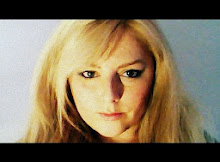Emma was the unwitting heroine of a book, several papers and a series of pamphlets that the doctor wrote. She was quite famous too, but not under her real name. The doctor made her famous in her time under the name of Deborah Kalikakk.
These are Emma’s crimes.
She had failed to learn to read or write by the age of eight.
She was born into the wrong family.
Lots of people take longer than age eight to learn to read or write. Anyone who frequents one or more internet communities will know that lots of people in their twenties and thirties never bother to learn to spell properly.
Emma’s family, the Woolvertons, were already being studied by doctors because so many of them were either on benefits, prostitutes or criminal. It suited the time to think that criminality and feeble-mindedness were hereditary and the Woolvertons, or the Kallikakks, provided much needed ammunition for the idea of Eugenics.
Eugenics, very simply, is the idea that all men are created equal, but that some are less equal than others and since you can’t kill them you will have to stop them procreating. The idea was that there was such a thing as “bad blood”, and that it spread more easily than “good blood”. This made the Woolvertons so interesting, because there were two branches on the Woolverton tree, all descended from the same man: one was hard working, successful and prosperous – the other was addled with criminals, prostitutes and retards. The doctor came up with the name Kallikakk from the greek words for good and bad, since the family was half good, and half bad. The doctor thought that, basically, Martin Kallikakk – the founding father of the family, had “good” blood and that the reason for the Kallis prosperousness was the good blood provided by his lawful wife. Approvingly described as “a good quaker girl”. The Kakk-side was fallen from the loins of Martin’s unhappy dalliance with a “feeble-minded” bar wench, whose hereditary promiscuous ways soon made her the mother of a clan teeming with unwanted elements through that one son they had together. You could ask what the fuck Martin was doing fingering someone he wasn’t planning to take care of in the first place, but apparently the fact that his quaker-sprogs were well cared for and well nourished and his wench-foal was raised in misery and quite likely to have been exposed to large amounts of alcohol in the womb, has nothing to do with the price of fish.
Since people didn’t know anything about chromosomes or foetal alcohol syndrome, they thought that being an idiot was hereditary and when seemingly healthy families had feeble-minded children, it was put down to dormant inheritance.
There is a curse. It says: may you live in interesting times. Emma grew up in interesting times. Her society on the one hand recognized the need to care for people who couldn’t take care of themselves, but on the other hand would prefer not to.
When your morals tell you that you need to care for the unfortunate, but your wallet says that it’s costing you – that’s when you start to wish that there were no runts in the litter. Enter eugenics.
With Emma as poster child the doctor told the world how well the feeble-minded thrived under the right care. The right care meant doing as you are told, and not having children of your own. Emma’s clean scrubbed face and polite demeanour – sprung from the cackier side of the Kallikakks – was seen as proof of principle. The fact that Emma in all likelihood was not feeble minded obviously did not matter. The thought was that people like Emma would live out their life span in “dignity” and then fade away and become a historical parenthesis.
Above all, society was worried about the prolific procreation among the feeble minded. The toll they took on the communal assets was seen with worry. There was a general feeling that if unchecked the world would be run over by morons within two generations. With increased infant survival the assets had to stretch further. The increased survival mostly benefitted those classes who had previously had the most difficulty in keeping their children alive. Large litters of children were a badge of honour during the eighteenth century, but as survival increased the children of the impoverished classes increased the most, to the horror of the well off. At the same time, there was social pressure to be charitable and good, so any means and measures must be under the guise of charity.
By the time of his death, the doctor no longer believed in his own research and spoke out against eugenics. It was too late. Eugenics was the big thing. Loads of people were sterilized. Not only for failing IQ-tests, but also for “promiscuity”, and for meeting the doctor on the wrong day.
Aren’t we lucky to live in a time where we don’t look suspiciously at those who breed like rabbits and cost tax-money? Because I am sure you can’t think of any such people.
Dare to think: What could my life have been?

